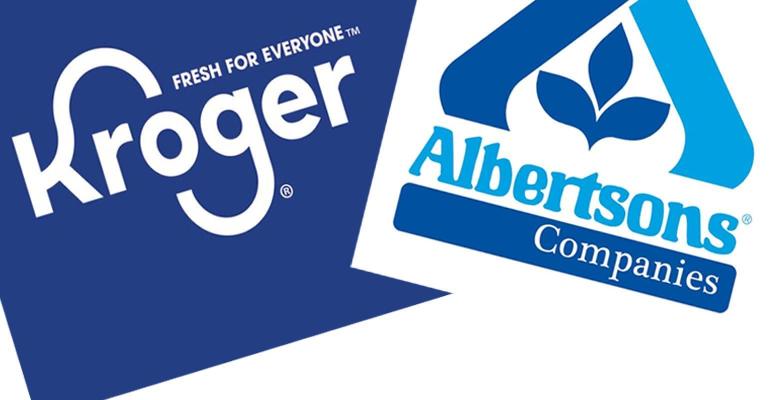Kroger and Albertsons are discussing plans to divest between 250 and 300 stores to satisfy antitrust concerns around their proposed merger, according to a Reuters report.
The stores in question may span across all the regions where the two companies operate, and could generate more than $1 billion for the companies through their sale, Reuters said, citing unnamed sources.
Spokespeople for both Kroger and Albertsons declined to comment to SN.
The two companies previously said they expected to divest between 100 and 375 locations as part of their $24.6 billion merger agreement, and had proposed creating a new company to operate the divested locations. Kroger said in a financial filing that if the companies are forced to divest more than 650 locations, the merger would be reconsidered.
Kroger and Albertsons have considerable overlap in several markets in the Western U.S. and in Chicago, and much less overlap in other Midwestern markets and in the Northeast and Mid-Atlantic.
The companies have been in touch with potential buyers for the stores, and have discussed their plans with the Federal Trade Commission, according to the Reuters report.
The report also cited Ahold Delhaize — which previously was reported to have been interested in acquiring all or part of Albertsons before the Kroger deal was announced — as one of the potential buyers of the divested locations.
A spokesperson for Ahold Delhaize, which operates Stop & Shop, Giant, Food Lion and Hannaford chains along the East Coast, could not be reached by SN for comment.
The FTC is expected to scrutinize the companies’ plans for divestitures carefully, given the debacle of the Albertsons-Safeway merger, when Haggen acquired 146 stores to satisfy antitrust regulators, then was unable to operate them successfully and filed for bankruptcy. Many of those divested stores were either re-acquired by Albertsons or closed.
Meanwhile opposition to the proposed Kroger-Albertsons merger remains strong, as a group of consumers recently filed an antitrust lawsuit to block the merger, and to reverse the $4 billion special dividend payment that Albertsons made to shareholders.
In addition, several state attorney general have pledged to continue to scrutinize the merger, even though they failed in efforts to prevent the dividend payment, which they argue weakens Albertsons’ financial position.
The merger, which would be the largest in the history of the industry, is expected to close in 2024.





